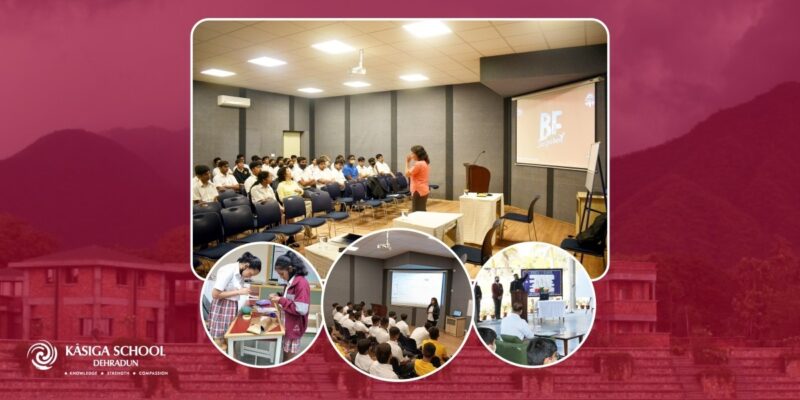International schools have grown in popularity in recent years as a result of their effective approach to educating children from diverse backgrounds. In terms of educational practices and teaching methodologies, international schools provide a wide range of benefits and opportunities to both instructors and students.
So, here are a few points that illustrate how international boarding schools differ from other schools in terms of teaching methods and pedagogical traditions:
A Unique Curriculum
Instead of the traditional method of educating children, international schools use a distinct curriculum that is mostly inquiry-based. Inquiry-based learning enables teachers to ensure that their pupils are proficient in academics, personal abilities, and overall development. This is in contrast to the normal rigorous curriculum provided at other institutions.
For example, several of the greatest international boarding schools in Dehradun, like Kasiga, follow the Cambridge Assessment International Education (CAIE) system. At the same time, teachers support students in acquiring the fundamentals and key learning principles, such as a methodical daily plan, an organized study strategy, and the ability to expand intellectually and emotionally.
Fewer Students Per Class with One-on-One Teacher Interaction
CAIE syllabus schools have smaller batch sizes than most other private and public schools. As a result, every student has the option to interact with their instructors whenever necessary in order to clear up any doubts, ask questions, or address any challenges. Personal contacts and extra support like these make kids feel respected, at ease and heard in the classroom.
It has been demonstrated that not only do their grades increase, but they also become more curious and do not hesitate to seek help from their professors. Teachers have a greater opportunity and more time to learn about each student’s individual requirements and may work with them to develop.
Specialized Preparation for Teaching in International Schools
The majority of instructors at international schools receive comprehensive training to assist them to understand the global curriculum the school uses. They are also educated to employ new technologies in the classroom for a better audio-visual teaching experience.
Smart boards or reactive portable boards, devices for internet research and presentation devices, are also installed in all international schools. These training techniques assist instructors in developing their leadership skills and communication skills in a school environment.
Possibility of Learning New Languages
The majority of international schools use English as their primary language of communication. However, due to the varied backgrounds of both instructors and students, additional languages are taught and utilized to communicate. Most international school teachers are native or bilingual speakers of many languages. This might be a fun chance for both instructors and students to learn new languages.
The top international boarding schools in Dehradun, such as Kasiga, teach more than one language to their pupils and want their staff to be bilingual. These include various indigenous Indian languages as well as foreign languages such as French and German. Such skilled teachers with linguistic talents may connect with pupils from all walks of life.
Exposure to Many Ethnicities from Throughout the World
Every teacher at an international school come from a wide range of cultures and ethnical backgrounds. While educating, they engage with one another and get a lot of knowledge about diverse teaching strategies, travel adventures, and ways to deal with problems in daily life.
Surprisingly, the educational environment is no exception. Students that attend foreign schools come from a variety of backgrounds, and some of them could have moved to a new country as a result of their parents’ jobs. They frequently share their previous experiences and learning with their new professors and peers. This also makes the teaching style dynamic and allows for a two-way dialogue.
Fostering Lifelong Learning Among Pupils
An international school, like Kasiga, bases its teaching technique on the idea that students should be educated not just about the subjects they are studying but also about how to be happy and healthy.
In addition, teaching should encourage autonomy, analytical and rational thinking, a problem-solving approach, and a collaborative work style. As a result, projects such as the extended essay and theory of knowledge are essential elements of the curriculum in global schools.
As a result, teaching methods and pedagogical traditions at international schools include a great deal of experiential learning. Personal contacts, experience sharing among students and professors, and hands-on learning methodologies are all part of it. Additionally, this type of teaching style provides a strong foundation for overall student experience and educator performance.
Hence, we encourage all parents to think about the benefits of international school teaching methods and enroll their children in such institutions. Parents at Kasiga evaluate our teaching technique as world-class, with a parent satisfaction score of 100%.


